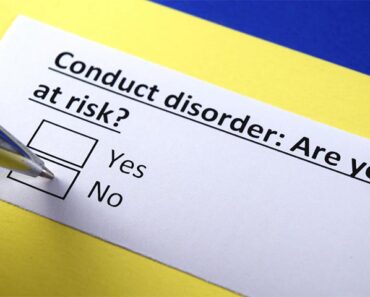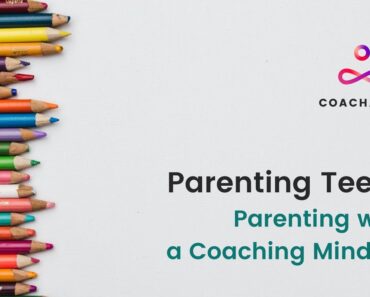Today’s Parent recently spoke with infectious disease physician Janine McCready about the COVID vaccine for kids under 12. We tackled side effects, fertility fears, and whether your 4-year-old can get the vaccine before their fifth birthday. Here’s a condensed version of that interview.
Before we get into discussing the vaccine, can you tell me a bit about what you do and how you’ve been involved in the pandemic response?
I’m an infectious disease physician at Michael Garron Hospital in East Toronto. Since the pandemic began in March of 2020 I’ve been really immersed in everything COVID. It started with our work in the hospitals, but we very quickly saw that this was a disease that was spreading in our communities so it was super important to do outreach to the communities and get testing done.
When schools went back in last year, I had the opportunity to be involved with supporting our schools and have been working very closely with all our schools in East Toronto to make testing easier and making sure that they have what they need to ideally keep the kids in school.
The last two years have been so difficult for kids. On a medical level, we’ve seen parents come in and are very sick, and some of them are single parents. There’s no one at home to take care of their kids, and their kids have all had COVID as well. So those have been very challenging situations, and in some situations, we’ve seen parents and certainly grandparents pass away from this disease.
Hopefully some of this improves now that kids aged 5 to 11 can get the COVID vaccine. How was Health Canada able to confidently tell the public this vaccine is safe for kids?
All of the evaluation was built on everything we’ve learned about the previous vaccines. That’s not just what was in the trials, but it’s all the emerging evidence that’s come out from around the world, on the safety and the efficacy of these medications in the 12 and up age groups.
Pfizer had also done a study in the 5 to 11 age group and they presented all the evidence to Health Canada. Health Canada went through everything, and then they had the opportunity to ask questions to Pfizer, ask for more specific data, and review that to make sure that when they were endorsing this they really could have confidence that the benefits of this vaccine outweigh the risks in this younger age group.
What should parents be expecting for side effects from this vaccine? Should they plan to keep their kids home from school the next day?
In the Pfizer study, they compared the side effects of the 3000 kids that got the Pfizer vaccine, to the side effects of the people in the 16 to 24 age group. In almost every category, children had lower side effects. That’s likely due to the way their immune system responds and that they are using 1/3 of the adult dose in children, so they are expected to have lower side effects.
The common things that kids experience were a sore arm…about 30 percent of them had a headache, 40 percent of them had fatigue, and then around 10 percent had chills and muscle aches. That was all short lived within a day or two. If your child is more likely to kind of feel lousy, you might want to plan to do the vaccine heading into a weekend or when they don’t have something big planned.
What’s the risk of cardiac side effects from the vaccine, like myocarditis or pericarditis?
We expect that the rates of myocarditis and pericarditis will be lower in this age group than we’ve seen with the older age groups.
One reason is that the risk decreases with age. The peak for the cases of myocarditis and pericarditis so far seems to be in 16 to 19 year-old males. Their rate was less than 1 in 10,000 people and almost always after the second dose and self resolving. Then the 12 to 15 year olds had a lower risk.
The second reason is because generally with myocarditis and pericarditis, five to 11 year olds are at lower risk. So, they have less risk at baseline from other viruses and from basically other things they have a lower risk.
The third reason is they’re getting a lower dose of the vaccine, one-third of the adult dose.
What I find reassuring is that even in those other age groups the children improved very quickly.
This is very different from the myocarditis you can get from actually getting COVID because you can get quite sick and have long term health effects from that.
As a mom and as a physician, I have really no qualms with advising my close friends and family and for my own kids to get vaccinated as soon as possible with this dose in this age group.
If, by chance, your child did experience myocarditis, how would you know?
The things to watch for would be chest pain, difficulty breathing, if they got a fever that wasn’t self-resolving within a day or two, and if they were seeming very lethargic or tired and unwell. In those cases, it would definitely be a good idea to take them to get checked out.
Is there any concern about side effects that could come up down the road?
We would not expect any long-term effects from this vaccine, and there are a few reasons for that.
It helps to understand how the vaccine works. In the first few days after the vaccine, that’s when there’s an immediate impact and there are local effects from the actual vaccine that would cause side effects. You’d expect those within the first few days.
Then the second phase of the side effects would be from your immune response to them. Your immune response peaks over the weeks following the vaccine then can’t increase anymore after about four to six weeks. So any serious side effects should be seen within that time frame. With the billions of doses that have been received, there hasn’t been anything unusual or rare that’s popped up besides myocarditis, which we’ve spoken about.
It would be exceedingly unlikely for something to pop up two years down the road, because it’s just not how the vaccines work.
Also, mRNA technology is actually not that new. We’ve been studying mRNA technology since the 1960s. So we actually do have long term data on the safety of mRNA vaccines, it’s just not in the setting of COVID. That was part of the reason that they could build the vaccine so fast, because they built on all that research that we’ve been doing for the last decades, and there’s been no long-term signal for anything with the mRNA technology in those people that have been studied.
Can the vaccine affect fertility? That’s a pretty common fear.
There is absolutely no evidence that the vaccine would, in any way, impact fertility. It can’t. There are no hormones in the mRNA and the vaccine doesn’t integrate within your cells in any way.
On the other hand, in adults with COVID, we are seeing a five times higher risk of erectile dysfunction.
You mentioned the benefits of the vaccine outweigh the risks. What are the benefits?
We have heard a lot about how kids don’t get severe disease from COVID, and most of them have mild disease, which is true. But there are certainly some kids that get sicker, and it’s very hard to predict which ones those are going to be. In the United States, they’ve actually had 66 children who have died from COVID in the last year and to me, that’s unacceptable. If we have a vaccine that’s safe and effective and can prevent death entirely, then I would jump at the chance to prevent that possibility from happening.
The second part is really thinking about your individual family. Ideally adults are vaccinated, but there’s some people where the vaccine might not work as well. So if your child is vaccinated, then they can still feel comfortable being around those people. The vaccine is not a bulletproof vest, but it really does provide significant protection and risk reduction of both getting COVID and of passing it on. On a community and societal level, every extra person that gets vaccinated moves us one step closer to getting back to being more normal, whatever that looks like now, and not having to worry about school disruptions and all those other things that have been always on our mind the last 20 months or so.
So practically speaking, if you can get your kid one vaccine in the coming weeks, will they have protection over the holidays if they want to visit with other family members?
Once you’re two weeks post your first dose, you will have a lower risk of acquiring COVID, but it’s still not zero. I think you have to look at your local situation—how much COVID is spreading in your community? What are the risks for your family members? Ideally, if everyone you’re visiting is vaccinated and they don’t have any significant immuno-compromising conditions, and you’re not visiting people when you have symptoms, or you’re getting tested if you have any symptoms—all those things are going to work together to significantly reduce your risk.
Do you need to wait two weeks between your flu shot and your COVID vaccine?
When Health Canada and the National Advisory Committee on Immunization (NACI) made that recommendation, they put it out there as a precaution so that we can see if there are any other side effects and you can know for sure whether they’re due to another shot or if they’re due to the COVID-19 vaccine.
The United States and the CDC have said it’s fine for kids to get the dose anytime or at the same time as the flu vaccine, so I think it’s really a precaution. If you happened to give your child the flu vaccine 10 days ago and then you booked an appointment for tomorrow, I would not cancel my appointment.
People are also asking me—which should I do first? I would get the COVID vaccine first, and then I would wait the two weeks and then get the flu vaccine because there’s more COVID around.
What about kids who are on the edges of the age groups? Which vaccine should they get?
The dose for 5 to 11 year olds is 10 micrograms versus 30 micrograms for people 12 and up.
They looked at a 10, 20 and 30 microgram doses in this age group, and they determined that the 10 microgram dose was adequate to produce basically the same level of immune response and protection as the 12 and up dose, and minimized the risk of side effects. It’s not based on weight or the size of your child, it’s based on the maturity of your immune system.
So far, anyone who is four, turning five—so anyone born in 2016—is eligible now to get the vaccine.
What we don’t know yet is what they’re going to do with the children that are turning five in 2022. That will depend on the provinces and what they roll out. I think it’s reasonable to say you have to wait till you’re five because they are studying the under fives with different doses and we expect that information to come out a little bit later this year, or early 2022.
But if you’re 11 turning 12—definitely don’t wait. Get the vaccine that is available for your child as soon as possible, assuming that you’re ready to get it.
For example, if my child was turning 12 in January, I would get them the 10 microgram dose, now. Then, after the eight weeks, once they were due for their second dose, they could actually get the adult dose, or the 30 microgram dose, for their second dose.
What about kids with allergies? Are there any special concerns?
There is no increased risk of reaction if you have food or environmental allergies. The only thing we’ve seen in terms of allergies in the older age groups is to something called Polyethylene Glycol, or PEG, which is not an allergy you would normally know about because it’s not in most products. You would only know if your children have undergone medical procedures and you would have been told specifically by a physician about that.
What can we expect in terms of the pandemic once this age group has been vaccinated?
On a personal level, if you’ve gotten your child vaccinated, you can definitely breathe a little easier, because even if you did get COVID, if everyone in your household is vaccinated, the risk of anyone having severe or serious outcomes is exceedingly low. It turns what could be something deadly into a cold, basically.
In terms of how the world is going to look in a few months—I do think that having vaccines available for this younger group is going to further decrease the cases. So you won’t see those explosive outbreaks that we’re seeing now, if kids are attending hockey tournaments or school, and it’ll make things and activities far safer, with lower risk. Whether things will ‘end’ and it’ll be totally back to normal, I think that’s a more challenging question, but I do really think this brings us one step further.
What do you suggest if people have more questions? Where can they go and who can they reach out to?
One place that’s great is the website ScienceUpFirst. They really break down myths about things and they provide good data and they help interpret the evidence.
And I think the most important thing is to talk to your healthcare providers and make sure that you have the information you need to feel comfortable making this decision. There are hotlines, for example at SickKids, set up so that parents can have conversations one-on-one with trusted health professionals that have all of the data and all of the knowledge to help you. I encourage people to reach out and make sure you have the answers you need to feel comfortable.
Then if you do have good information, share that with the people around you, because we do know that if people are a bit hesitant or a bit worried, then they’re more likely to listen to their loved ones and people that they trust.
As we’ve said throughout this—and it’s a cliché—but we are in this together.

































